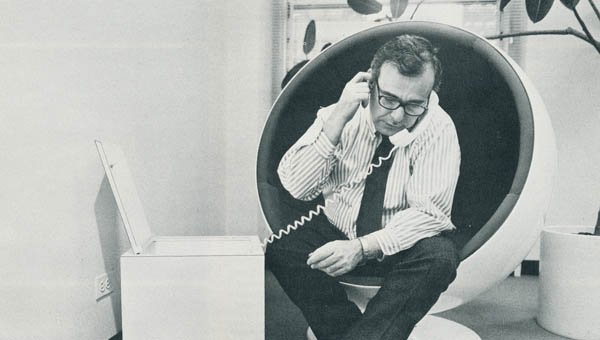Before watching “Searching for Mr. Rugoff,” I did what most viewers would probably do — I googled Donald Rugoff. I hadn’t known the name before hearing the title and as such, I thought that some background knowledge might come in handy. But Rugoff doesn’t even have a Wikipedia page.
Director Ira Deutchman, who credits his career to Rugoff, thus begins his search. Rugoff was the largest art film distributor in the ’70s, converting his father’s theater chain into an array of massively popular art house theaters in New York City, one of which is now NYU’s Cantor Film Center. The film is constituted almost exclusively of interviews with people who have known and worked for Rugoff. Almost everyone recounted two common details — Rugoff was a genius, but he could also be extremely volatile and damaging to those around him. Rugoff’s harmful qualities are not mentioned in force throughout the rest of the film, but they certainly add an unspoken weight in certain interviews, particularly those with his two sons and close friends.
Rugoff’s genius shone through in his creation of modern art theaters, his eye for buying art films otherwise seen as unbuyable and his extremely successful marketing campaigns. Rugoff was the distributor who decided to buy the now-cult classic “Monty Python and the Holy Grail,” bringing it to U.S. viewers when other distributors saw it as a risky investment. His marketing campaign was to send countless young staff out into the streets dressed as the characters in full mail, recreating the famous coconut horse gag that runs throughout the film. Between this and his offering of free coconuts to the first 1,000 viewers, the film became one of his largest successes, solidifying its place in film outside of its native U.K.
Former staff move “Mr. Rugoff” forward. Many, like Deutchman himself, were almost randomly hired by Rugoff while in their early twenties and just as randomly laid off as his grip on the company began to slip. The now older staff all share a connection to Rugoff. Many of their long careers were kickstarted by him, and many of them were emotionally affected by Rugoff’s volatile personality.
The film’s title, “Searching for Mr. Rugoff,” at first seems to be a reference to the literal format of the film. Deutchman goes amateur sleuthing to uncover the secrets surrounding Rugoff’s quiet death in Martha’s Vineyard, but these final years and the search to uncover them do not take up many scenes. The real search seems to be Deutchman trying to find the remaining pieces of a forgotten man who has unquestionably shaped him and the film industry at large. Deutchman is reaching out, trying to find others who have been affected by Rugoff in the same way he was in a series of progressively more emotional interviews while simultaneously filling in the gap in public knowledge about undoubtedly one of the most important figures in film.
“Searching for Mr. Rugoff” succeeds in its mission. It finds the remnants of Rugoff in the once-young employees and directors who collided with him in his lifetime and presents them in a way that left me wondering how exactly this man’s name has been absent from mainstream discussion for so long. While the film may skew the perception of Rugoff toward his more favorable aspects by not focusing on the negative impact of his volatile personality, his contribution to film and the people now at the forefront of the industry is undeniable, and presented in a well-polished form that stays entertaining, emotional and informative throughout.
A version of this article appears in the Monday, Nov. 4, 2019, print edition. Email Nicholas Weid at [email protected].


























































































































































